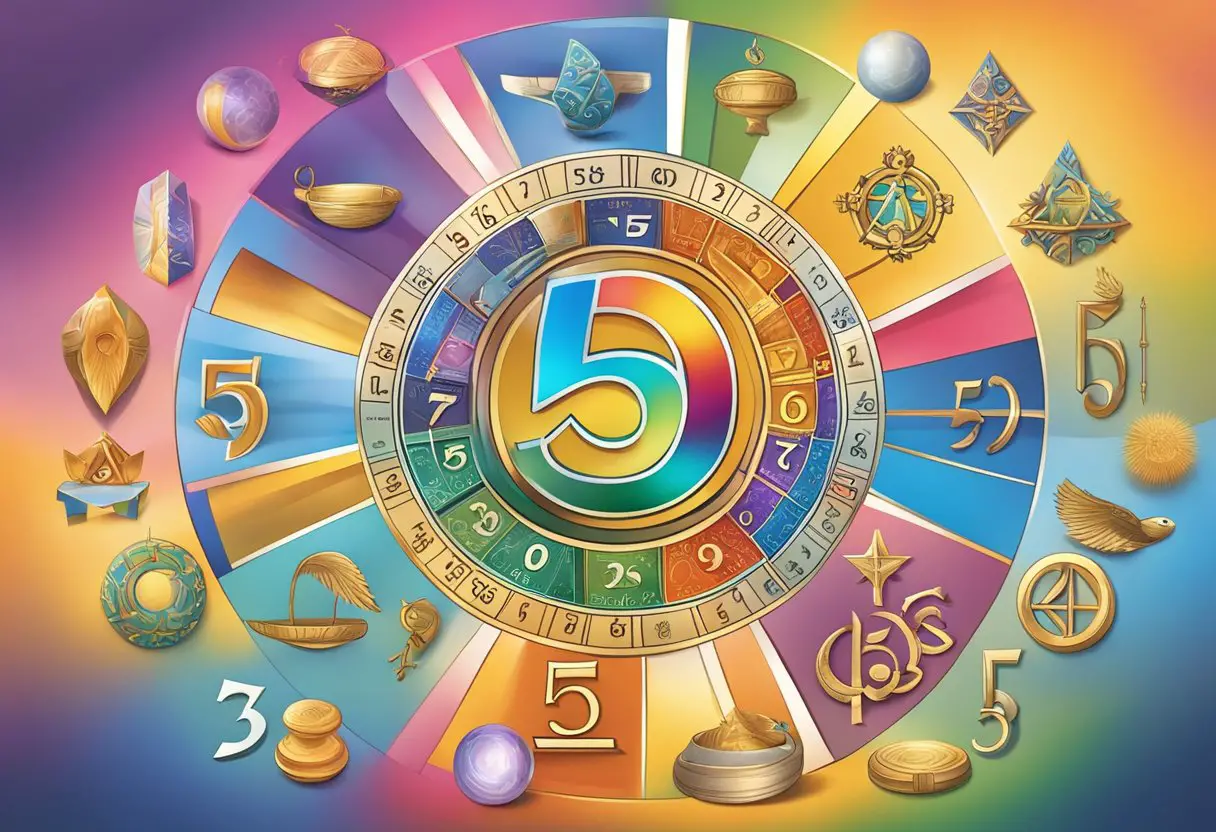The number five holds significant symbolism in the Bible, appearing frequently throughout scripture. It is commonly associated with God’s grace, goodness, and favor towards humanity. Biblical scholars interpret the number five as a representation of God’s mercy and grace, which is why it is mentioned so many times in the Bible.
In the Old Testament, the fifth commandment instructs us to honor our parents, which represents respect for authority and valuing the relationships in our lives. Additionally, the construction of God’s Tabernacle in Exodus involves many instances of the number five, as well as several multiples of the number. This has led many scholars to believe that the number five represents God’s plan for salvation and His grace towards humanity.
The number five is also associated with the five books of Moses, which are considered the foundation of the Old Testament. These books, also known as the Pentateuch, include Genesis, Exodus, Leviticus, Numbers, and Deuteronomy. The number five is also significant in the New Testament, where it is associated with the five wounds of Christ and His five-fold ministry. Overall, the number five holds a special place in the Bible and is a powerful symbol of God’s grace and mercy towards humanity.
Meaning of Number 5 in Biblical Numerology

The Bible is full of symbolism and hidden meanings, and numbers play a significant role in this regard. One such number that holds great spiritual significance in the Bible is the number 5. In biblical numerology, the number 5 is believed to represent God’s grace and goodness towards humanity.
Pentateuch
The Pentateuch, the first five books of the Old Testament, contains numerous references to the number 5. For instance, the Ten Commandments are divided into two sets of five commandments each. The first set of five commandments deals with man’s relationship with God, while the second set of five commandments deals with man’s relationship with his fellow human beings. This division signifies the importance of balance and harmony in life, which is also represented by the number 5.
Fivefold Ministry
In the New Testament, the number 5 is associated with the fivefold ministry, which is the five roles that Christ has given to the church. These roles are apostles, prophets, evangelists, pastors, and teachers (Ephesians 4:11). Each of these roles represents a different aspect of the church’s mission, and together they work towards the goal of edifying the body of Christ.
David’s Stones
Another significant reference to the number 5 in the Bible is found in the story of David and Goliath. David picked up five smooth stones from a brook before facing Goliath, and he only needed one of those stones to defeat the giant. This story is often interpreted as a symbol of the power of faith and the importance of being prepared for the challenges of life.
In conclusion, the number 5 holds great spiritual significance in the Bible, and its symbolic meanings vary in different biblical contexts. It represents God’s grace, mercy, and favor towards humanity, and it reminds us of the importance of balance, harmony, and faith in our lives.
Symbolic Representations of Number 5

The number 5 is a significant number in the Bible, and it is rich in symbolism. It represents God’s grace, kindness, and favor towards humanity. The number 5 is mentioned 318 times in the Bible, and it is believed to be a symbol of the goodness and grace of God.
Grace and Favor
The number 5 represents God’s grace and favor towards humans. When the number 5 is multiplied by itself, it produces 25, which is “grace upon grace” (John 1:16). The Ten Commandments contain two sets of 5 commandments each. One set is related to man’s relationship with God, while the other set is related to our relationship with other people. The fifth commandment instructs us to honor our parents, which represents respect for authority and valuing the relationships in our lives.
Humanity
The number 5 is often associated with humanity and the five senses. It represents the physical world and the five elements: earth, air, fire, water, and spirit. In Hebrew, the number 5 comes up the most when God’s grace is shown, such as in Leviticus offerings and the building of the Tabernacle.
Balance and Order
The number 5 also represents balance and order. It is the midpoint between 1 and 9, which represent the beginning and end of a cycle. In the Bible, the number 5 is associated with the five-fold ministry of apostles, prophets, evangelists, pastors, and teachers. These ministries work together to bring balance and order to the church.
In conclusion, the number 5 holds significant symbolic representations in the Bible. It represents God’s grace, kindness, and favor towards humanity, as well as balance and order. The fifth commandment instructs us to honor our parents, which represents respect for authority and valuing the relationships in our lives.
Number 5 in Prophecy and Vision

The number 5 plays an important role in biblical prophecy and vision. It is often used as a symbol for grace, goodness, and favor towards humans. In addition, it is also associated with the five books of the Torah, which are considered the foundation of Jewish and Christian faiths.
Apocalyptic Imagery
In the Book of Revelation, the number 5 is used in several apocalyptic images. For example, there are five seals on the scroll that only the Lamb can open (Revelation 5:1). Each seal represents a different judgment that will come upon the earth. Similarly, there are five angels who blow trumpets to announce the coming judgments (Revelation 8:2). These judgments include hail and fire, a mountain burning with fire, and a star that falls from the sky.
Prophetic Symbols
The number 5 is also used as a prophetic symbol in the Bible. For instance, in the book of Zechariah, the prophet sees a vision of a lampstand with seven lamps, each with seven pipes leading to them. The angel tells him that this represents the eyes of the Lord, which range throughout the earth (Zechariah 4:10). The lampstand has five branches on each side, representing the seven spirits of God.
In addition, the number 5 is used in Hebrew meaning as a symbol for God’s grace and favor towards humans. It is also associated with the five senses of the human body – sight, hearing, touch, taste, and smell. Furthermore, the number 5 is used in biblical numerology to represent balance and harmony, representing the midpoint in sets of ten.
Overall, the number 5 holds great significance in biblical prophecy and vision. It is used as a symbol for God’s grace, goodness, and favor towards humans. It is also associated with the five books of the Torah and the five senses of the human body.

